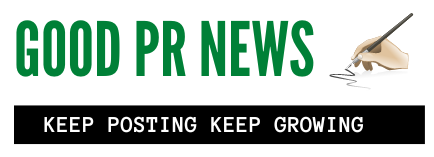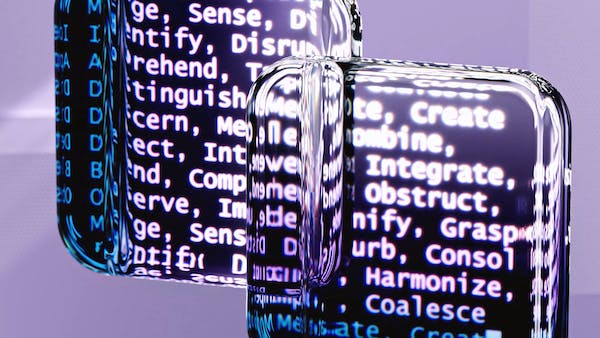The Next-Generation Antibody Therapeutics Global Market Report 2024 by The Business Research Company provides market overview across 60+ geographies in the seven regions – Asia-Pacific, Western Europe, Eastern Europe, North America, South America, the Middle East, and Africa, encompassing 27 major global industries. The report presents a comprehensive analysis over a ten-year historic period (2010-2021) and extends its insights into a ten-year forecast period (2023-2033).
Learn More On The Next-Generation Antibody Therapeutics Market:
According to The Business Research Company’s Next-Generation Antibody Therapeutics Global Market Report 2024, The next-generation antibody therapeutics market size has grown rapidly in recent years. It will grow from $6.14 billion in 2023 to $6.9 billion in 2024 at a compound annual growth rate (CAGR) of 12.4%. The growth in the historic period can be attributed to monoclonal antibody success, rising prevalence of chronic diseases, approval of antibody-drug conjugates, growth of immunotherapy, gene therapy and antibodies.
The next-generation antibody therapeutics market size is expected to see rapid growth in the next few years. It will grow to $10.41 billion in 2028 at a compound annual growth rate (CAGR) of 10.8%. The growth in the forecast period can be attributed to biosimilar development, bispecific antibodies development, nanobody development, patient-centric approaches, immunomodulatory antibodies, expanded applications in autoimmune diseases, continuous manufacturing. Major trends in the forecast period include advancements in antibody engineering, digital technologies in antibody design, industry collaborations, advancements in drug delivery systems, real-world evidence in antibody development.
The increasing prevalence of chronic diseases is expected to propel the growth of the next-generation antibody therapeutics market going forward. Chronic diseases are problems that last a year or longer, necessitating continuing medical care, restricting everyday activities, or both. Next-generation antibody therapeutics have a therapeutic function for individuals with chronic illnesses that deliver more focused care, which would benefit patients’ outcomes. For instance, in January 2023, according to the National Center for Biotechnology Information (NCBI), a US-based National Library of Medicine, it was projected that by the year 2050, the number of individuals aged 50 years and older who have at least one chronic illness will surge by 99.5%, rising to 142.66 million. Therefore, the increasing prevalence of chronic diseases is driving the growth of the next-generation antibody therapeutics market.
Get A Free Sample Of The Report (Includes Graphs And Tables):
https://www.thebusinessresearchcompany.com/sample.aspx?id=12678&type=smp
The next-generation antibody therapeutics market covered in this report is segmented –
1) By Types Of Antibodies: Monoclonal Antibodies, Polyclonal Antibodies, Biospecific Antibodies, Antibody-Drug Conjugates, Other Types
2) By Therapeutic Area: Oncology, Autoimmune Diseases, Infectious Diseases, Neurodegenerative Disorders, Other Therapeutic Areas
3) By End-User: Hospitals And Clinics, Research Institutes, Pharmaceutical And Biotechnology Companies, Other End-Users
Technological advancements are a key trend gaining popularity in the next-generation antibody therapeutics market. Major companies operating in the next-generation antibody therapeutics market are concentrating on creating technologically advanced products to strengthen their position in the market. For instance, in October 2021, Merck KGaA, a Germany-based science and technology company, launched the new technology ChetoSensar. By addressing solubility issues, ChetoSensar offers renewed hope for antibody-drug conjugates. It has improved the efficacy of its antibody-drug conjugates and high-potency active pharmaceutical ingredient (HPAPI). By enhancing the solubility of antibody-drug conjugates, the novel ChetoSensar technology expands the potential for developing next-generation antibody-drug conjugate therapeutics.
The next-generation antibody therapeutics market report table of contents includes:
1. Executive Summary
2. Next-Generation Antibody Therapeutics Market Characteristics
3. Next-Generation Antibody Therapeutics Market Trends And Strategies
4. Next-Generation Antibody Therapeutics Market – Macro Economic Scenario
5. Global Next-Generation Antibody Therapeutics Market Size and Growth
.
.
.
26. South America Next-Generation Antibody Therapeutics Market
27. Brazil Next-Generation Antibody Therapeutics Market
28. Middle East Next-Generation Antibody Therapeutics Market
29. Africa Next-Generation Antibody Therapeutics Market
30. Next-Generation Antibody Therapeutics Market Competitive Landscape And Company Profiles
Top Major Players:
- Pfizer Inc.
- F. Hoffmann-La Roche Ltd
- Bayer AG
- Bristol-Myers Squibb Company
- AstraZeneca PLC
Contact Us:
The Business Research Company
Europe: +44 207 1930 708
Asia: +91 88972 63534
Americas: +1 315 623 0293
Email: [email protected]
Follow Us On:
LinkedIn: https://in.linkedin.com/company/the-business-research-company
Twitter: https://twitter.com/tbrc_info
Facebook: https://www.facebook.com/TheBusinessResearchCompany
YouTube: https://www.youtube.com/channel/UC24_fI0rV8cR5DxlCpgmyFQ
Blog: https://blog.tbrc.info/
Healthcare Blog: https://healthcareresearchreports.com/
Global Market Model: https://www.thebusinessresearchcompany.com/global-market-model




